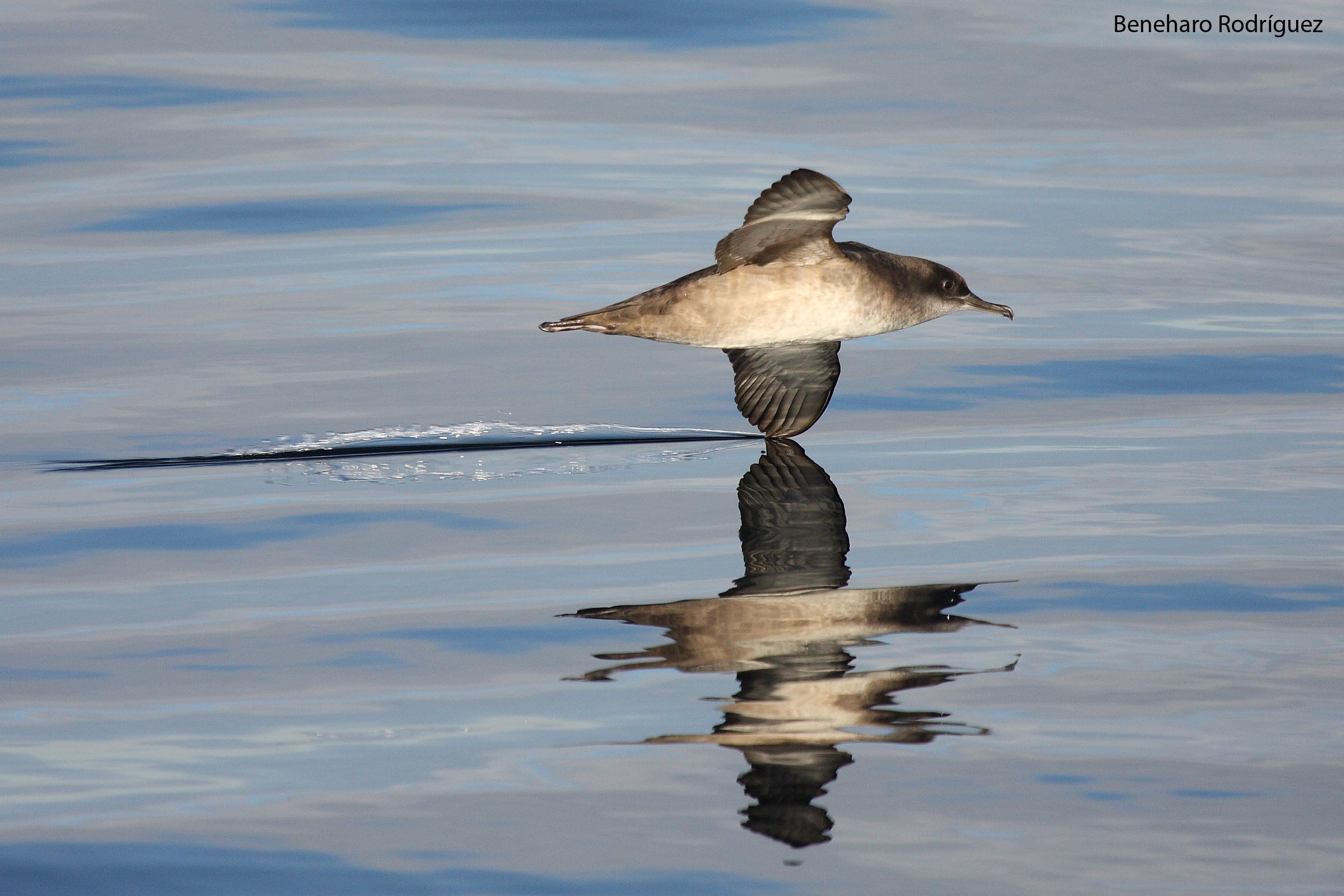
Balearic Shearwater at sea, photograph by Beneharo Rodriguez
Johan Elmberg (Department of Environmental Science and Bioscience, Kristianstad University, Sweden) and colleagues have published in the open access journal Marine Ornithology on counts of Balearic Shearwaters Puffinus mauretanicus and other seabirds made from a headland in Portugal.
The paper’s abstract follows:
“Land-based counts at Cabo Carvoeiro (Peniche, Portugal), made between 15 August-15 November 2015 (effort 90 d, 517 h), tallied 302 469 birds, most of which (99.98%) were southbound. Although 65 species were observed, four species contributed to 91% of the total: 207 608 Northern Gannet Morus bassanus, 32 281 Cory's Shearwater Calonectris borealis, 16 086 Manx Shearwater Puffinus puffinus, and 15 222 Balearic Shearwater Puffinus mauretanicus. Passage as a whole increased throughout the period, mainly due to a gradual intensification of Northern Gannet migration. More than 67 000 southbound procellariforms [sic] of 12 species were recorded, as were 6183 Stercorariidae of four species. Daily passage rates of species recorded on more than 68 d were positively correlated in 22 of 36 cases. For Northern Gannet and Mediterranean Gull Ichthyaetus melanocephalus, the proportion of adult birds increased steadily, outnumbering younger birds. Extrapolation based on counted versus uncounted daylight hours suggests that at least 415 000 Northern Gannets, 65 000 Cory's Shearwaters, and 30 000 Balearic Shearwaters passed south at Cabo Carvoeiro in autumn 2015. Clearly, a very large share of the global population of the endangered Balearic Shearwater can be monitored at Cabo Carvoeiro. Based on generally unidirectional passage patterns, high species diversity, as well as high season totals and daily passage rates of several species, Cabo Carvoeiro is one of the most promising mainland sites in the eastern North Atlantic to monitor a wide range of seabirds.”
Reference:
Elmberg, J., Hirschfeld, E., Cardoso, H. & Hessel, R. 2020. Seabird migration at Cabo Carvoeiro (Peniche, Portugal) in autumn 2015. Marine Ornithology 48: 231-244.
John Cooper, ACAP Information Officer, 23 September 2020

 English
English  Français
Français  Español
Español